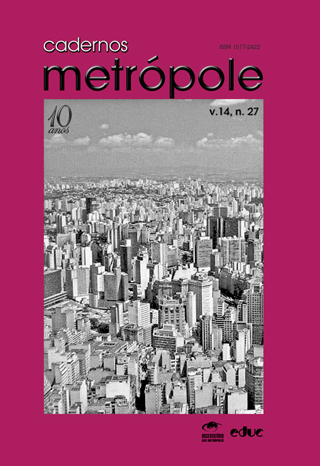Habitus, planning and public governance
Keywords:
habitus, social field, planning, urban governance, powerAbstract
This paper is organized in two sections. The first deals with the propositions advanced by Bourdieu by focusing on his theory of structural constructivism. It draws on Bourdieu's theory of habitus,” field" and "the dynamic of struggles and within the field" in order to assess the extent to which Bourdieu constructs can help to understand the dynamic of planning practice in Brazil. The second section evaluates six working hypothesis dealing with Bourdieu concepts of social field and habitus which explain the dialectical relation between structure and agency in the planning process. The empirical analysis and the theoretical confrontations are simultaneously developed by taking the experience of Brazilian planning practice and particularly that of São Paulo city. The concepts of field and habitus in planning are analyzed in detail, in articulation with the concepts of power, domination and class struggle, which according to Bourdieu, are central for understanding the process of change of the social structure. The paper attempts to sketch a reference framework for analyzing the practice of planning as a field of struggles between forces seeking to keep and forces seeking to change the social structure.Metrics
Metrics Loading ...
Downloads
How to Cite
Torres, N. R. (2013). Habitus, planning and public governance. Cadernos Metrópole, 14(27), 115–133. Retrieved from https://revistas.pucsp.br/index.php/metropole/article/view/14783
Issue
Section
Artigos
License
A revista não tem condições de pagar direitos autorais nem de distribuir separatas.
O Instrumento Particular de Autorização e Cessão de Direitos Autorais, datado e assinado pelo(s) autor(es), deve ser transferido no passo 4 da submissão (Transferência de Documentos Suplementares). Em caso de dúvida consulte o Manual de Submissão pelo Autor.
O conteúdo do texto é de responsabilidade do(s) autor(es).


